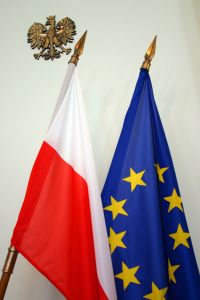

THERE are (at least) two antitrust-related cases in Europe which affect Microsoft. The first relates to Web browsers and the second relates to interoperability, along with the relation to software patents. What will the new European Commission do regarding these cases now that it's filled with more Microsoft-sympathetic people?
The first type of case we have covered in:
Three people familiar with the situation said the European Commission was expected to approve on Tuesday Microsoft's plan to make it easier for consumers to choose rival browsers on the firm's Windows operating system, which is used on a majority of personal computers.
The decision would allow Microsoft to avoid another hefty penalty, after it had been fined a total of 1.68 billion euros ($2.5 billion) by the Commission over charges it breached EU antitrust rules.
Opera Software announces that within one week of its release, more than 12 million people downloaded Opera 10.10 with Opera Unite.
Companies including Microsoft have been pushing for a more international approach to patents. In September, Microsoft's Horacio Gutierrez corporate vice president and deputy general counsel said that over 3.5 million patent applications are pending around the world, including over 750,000 in the U.S - and the costs and time-delays are too high at present. A single global patent system would ease the burden on companies and patent offices.
"In today’s world of universal connectivity, global business and collaborative innovation, it is time for a world patent that is derived from a single patent application, examined and prosecuted by a single examining authority and litigated before a single judicial body," he said.
In 2006, Microsoft and Linux-distribution owner Novell signed an interoperability collaboration agreement which included some protection relating to Microsoft's ownership of intellectual property in the open source operating system.
European ministers have reached agreement on a new EU-wide patent structure after lengthy negotiations but have failed to find a way past the biggest obstacle to an EU-wide patent: the cost of translation.
Ministers have approved a new litigation system to deal with a new Europe-wide patent in a deal that will still require the approval of the European Parliament and the Court of Justice of the European Union (CJEU).
Drug-Makers Paying Off Competitors To Keep Cheap Generics Off Market
Republicans and their allies in the business community talk a good game about the virtues of free-market competition. But, as we've seen in the debate over the public option, that stance often goes out the window when corporate profits are at stake.
And now we've got another example -- one of the sleaziest and most blatantly self-serving yet.